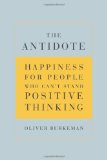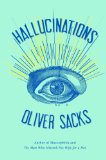The new month brings a fresh batch of 100 Kindle books for $3.99 or Less at Amazon.com. (“Individual books may have additional territory restrictions, and not all deals are available in all territories. Amazon may modify the selection of books offered at any time.”)
November’s selections include:

Evolution: What the Fossils Say and Why It Matters by Donald B. Prothero (Columbia University Press, 2007) for $3.99
Book description from the publisher:
Over the past twenty years, paleontologists have made tremendous fossil discoveries, including fossils that mark the growth of whales, manatees, and seals from land mammals and the origins of elephants, horses, and rhinos. Today there exists an amazing diversity of fossil humans, suggesting we walked upright long before we acquired large brains, and new evidence from molecules that enable scientists to decipher the tree of life as never before.
The fossil record is now one of the strongest lines of evidence for evolution. In this engaging and richly illustrated book, Donald R. Prothero weaves an entertaining though intellectually rigorous history out of the transitional forms and series that dot the fossil record. Beginning with a brief discussion of the nature of science and the “monkey business of creationism,” Prothero tackles subjects ranging from flood geology and rock dating to neo-Darwinism and macroevolution. He covers the ingredients of the primordial soup, the effects of communal living, invertebrate transitions, the development of the backbone, the reign of the dinosaurs, the mammalian explosion, and the leap from chimpanzee to human. Prothero pays particular attention to the recent discovery of “missing links” that complete the fossil timeline and details the debate between biologists over the mechanisms driving the evolutionary process.
Evolution is an absorbing combination of firsthand observation, scientific discovery, and trenchant analysis. With the teaching of evolution still an issue, there couldn’t be a better moment for a book clarifying the nature and value of fossil evidence. Widely recognized as a leading expert in his field, Prothero demonstrates that the transformation of life on this planet is far more awe inspiring than the narrow view of extremists.

How Will You Measure Your Life? by Clayton M. Christensen, James Allworth and Karen Dillon (HarperCollins, 2012) for $3.99
Book description from the publisher:
In 2010 world-renowned innovation expert Clayton M. Christensen gave a powerful speech to the Harvard Business School’s graduating class. Drawing upon his business research, he offered a series of guidelines for finding meaning and happiness in life. He used examples from his own experiences to explain how high achievers can all too often fall into traps that lead to unhappiness.
The speech was memorable not only because it was deeply revealing but also because it came at a time of intense personal reflection: Christensen had just overcome the same type of cancer that had taken his father’s life. As Christensen struggled with the disease, the question “How do you measure your life?” became more urgent and poignant, and he began to share his insights more widely with family, friends, and students.
In this groundbreaking book, Christensen puts forth a series of questions: How can I be sure that I’ll find satisfaction in my career? How can I be sure that my personal relationships become enduring sources of happiness? How can I avoid compromising my integrity—and stay out of jail? Using lessons from some of the world’s greatest businesses, he provides incredible insights into these challenging questions.
How Will You Measure Your Life? is full of inspiration and wisdom, and will help students, midcareer professionals, and parents alike forge their own paths to fulfillment.

How to Get Ideas by Jack Foster (Berrett-Koehler, 2007) for $1.99
Book description from the publisher:
How to Get Ideas shows you – no matter your age or skill, your job or training – how to come up with more ideas, faster and easier. First, Jack Foster tells you how to condition your mind and become “idea-prone; ” how to make the child within you and your sense of humor work for you; how to develop your curiosity, visualize your goals, rethink your thinking, combine different ideas, and overcome your fear of rejection. Then, Foster gives you a five-step procedure for solving problems and getting ideas, a proven procedure that takes the mystery and anxiety out of the idea-generating process, a procedure that works. Learn how easy it is to become more creative. Read the book you’re holding.









